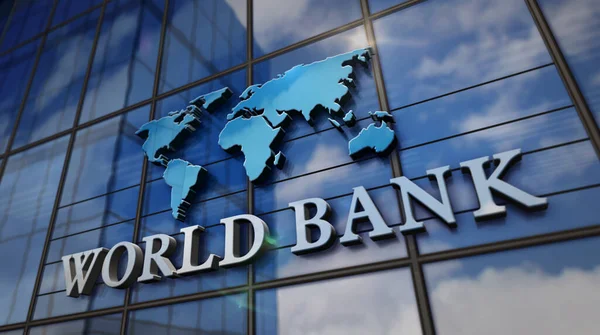World Bank approves $200 million loan for Ghana Digital Acceleration Project
The Ghana Digital Acceleration Project has been described as a game-changer for the country, which has become one of the leading digital economies in sub-Saharan Africa. The project will build on previous investments made by the World Bank, particularly through the ongoing e-Transform Ghana project, to create an enabling environment for digital inclusion and innovation, streamline governance and delivery of public services, and facilitate smallholder engagement in data-driven digital agriculture.

Ghana is set to receive a $200 million loan from the World Bank to fund its digital acceleration project. The initiative aims to improve internet and broadband access to under-served rural areas, with a particular focus on women, persons with disabilities, and rural communities. The project will also seek to promote digital entrepreneurship and digital inclusion across the country.
The Ghana Digital Acceleration Project has been described as a game-changer for the country, which has become one of the leading digital economies in sub-Saharan Africa. The project will build on previous investments made by the World Bank, particularly through the ongoing e-Transform Ghana project, to create an enabling environment for digital inclusion and innovation, streamline governance and delivery of public services, and facilitate smallholder engagement in data-driven digital agriculture.
- Advertisement -
The loan comes at a time when Ghana’s digital ecosystem has become one of the best-performing sectors in the country, growing at an average rate of 19 percent annually between 2014 and 2020. Ghana’s leadership in digital technology has been recognized globally, and the Digital Economy diagnostic conducted in 2020 identified key bottlenecks that need to be removed to further accelerate Ghana’s digital transformation.
- Advertisement -
The World Bank has highlighted the potential for digital transformation in Ghana, which has been reflected in the rise of foreign direct investments. However, the bank has also noted that significant barriers to digital service access exist for Ghana’s lowest-income people, which need to be addressed if Ghana is to perform its role in the comity of nations and empower people to take advantage of the opportunities created by the digital revolution.
The Ghana Digital Acceleration Project seeks to address these barriers by increasing access to mobile internet and broadband services for 6 million people, encouraging private sector investment in last-mile connectivity of underserved rural areas, and promoting digital inclusion for women, persons with disabilities, and rural communities through regulatory updates and investments. By doing so, the project aims to close the regional digital gap and remove barriers to broadband and digital service access.
- Advertisement -
In a statement following the approval of the loan, Communications and Digitalisation Minister Ursula Owusu-Ekuful highlighted the potential for the project to strengthen the local digital entrepreneurship ecosystem and establish robust digital infrastructure across the length and breadth of the country. She also emphasized the importance of supporting start-ups through the Venture Capital Trust Fund and other existing institutions, promoting gender digital inclusion, and ensuring that persons with disabilities acquire the relevant digital skills needed to drive Ghana’s digital transformation.
The loan has been welcomed by stakeholders in the country, who see it as a major boost to Ghana’s digital economy. However, there are concerns about the level of debt that Ghana is accumulating, particularly with regard to the country’s ability to service its debt obligations in the long term. Ghana’s debt-to-GDP ratio currently stands at around 80 percent, which is considered high by international standards.
Despite these concerns, the World Bank has expressed confidence in Ghana’s ability to manage its debt obligations and maintain economic stability. The bank has noted that Ghana has made significant progress in recent years in implementing reforms aimed at strengthening public financial management, reducing fiscal deficits, and improving debt sustainability.
Overall, the Ghana Digital Acceleration Project represents a significant step forward for Ghana’s digital transformation, which has the potential to drive economic growth, create jobs, and improve the lives of millions of Ghanaians. While there are concerns about the level of debt that Ghana is accumulating, stakeholders remain optimistic about the country’s ability to manage its debt obligations and maintain economic stability in the long term.
Source: norvanreports
- Advertisement -



